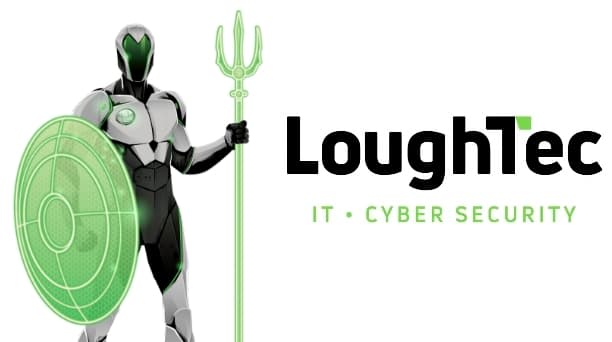Agri Foods Industry
Page EnquiryThreats are on the rise!
Many global brands and household names have been subject to cyber-attacks over the last number of years, including Moy Park, Fane Valley, Co-Operative Society, Irish Dairy Board and ABP.
These are ‘known’ attacks. There are many other smaller organisations and farms throughout the country that have also been subjected to the various forms of cyber-attacks but have remained anonymous in order to protect their brand reputation.
The 2019 cyberattack on Moy Park disrupted its IT systems and caused delays to processing and distribution.
Have you considered how long your business could survive if production was halted for 48 hours?
A week?Or the industry average of 22 days?
How much would it cost your Agri Foods Industry business financially and in terms of reputation?
Click the link to see how much a cyber-attack could potentially cost your business with LoughTec's bespoke cyber attack financial impact calculator.
What’s important to remember is scale, a ransom email may well breach both a large organisation like Moy Park and a small farm in the same way. The outcome will be just as devastating to both businesses but most likely the larger organisation will survive.
The agriculture and food industry are very challenging and they come with the obvious governance and compliance regulations associated within these industries. Frequently the growing, production and distribution is on a large scale hence, a lot of departments and divisions will frequently have older technology still in use in some parts, which presents a larger and easier attack surface for a cyber-attack to occur.
The sector has been historically less reliant on technology than retail or finance and has been slow to fully embrace new technology and digitisation. Many organisations and businesses are using outdated technologies that may not have the latest security updates or patches. These vulnerabilities can be targeted specifically by cyber criminals to help them gain access to networks and data. Many of the companies involved in our food supply chain are inter-dependent. Organisations rely on a complex supply chain for the production, distribution, wholesaling or retailing processes. Ultimately, the more supply partners you have in your supply chain, the greater the potential risk.
The sector is comprised of many small to medium sized businesses and farm holdings that do not have the resource to dedicate to the problem or to invest in the appropriate security technology and software.
Many farmers and smaller agri-food business owners lack awareness of the risks and threat from cyberattack and simply do not yet see cyber security as the most important threat to their business survival.
Cybercriminals are usually targeting the agri-food sector with the sole purpose of shutting down production. An attack on your production will not only cost you money, it may well also compromise the safety and quality of food products which in turn is very clear threat to people’s lives.
For every mention of a global brand as a victim, the unintended consequence is to lead people to believe that “cybercrime will never happen to them” because of their size, their turnover or location.
The truth is that it a cyberattack WILL happen to your business, if it hasn’t happened already.
Ransomware attacks:
Ransomware is a type of malware that encrypts a business’s files, demanding payment in exchange for a decryption key. The ransom can vary in size but will usually be a significant cost that we would urge you not to pay as there is no guarantee that you will be decrypted or that you won’t be targeted again.
Phishing and social engineering attacks:
These attacks use fake emails, messages, or calls to trick employees into revealing sensitive information or downloading malware by ‘pretending’ to be a ‘legitimate’ source, an email from a trusted sender, as an example.
Malware attacks:
These attacks involve infecting a company’s computers or network with malicious software that can steal data or disrupt operations.
Distributed Denial of Service (DDoS) attacks:
A DDoS attack involves a threat actor overwhelming your business’s servers and network with traffic which makes it unavailable to users.
Passwords:
Password attacks include brute-force attacks, dictionary attacks, and other methods of cracking passwords to gain access to sensitive information. If passwords are too predictable or remain unchanged for long periods of time, they can be easily guessed or cracked, leaving easy access for hackers.
Working from home:
Cloud-enabled systems have helped many of our customers adapt to flexible working over the last 3 years. As people continue to work from home in greater numbers than ever before it is important to remember that all data is now stored in the cloud and is vulnerable to attack. Each employee working from home with a laptop and Smart phone increases further the threat area.
Third-party and supply chain:
Many organisations give system and network access to 3rd party suppliers or vendors who may not operate at the highest security level. Their vulnerability can make you exposed to the same cyberattack.
Human error:
Strategic or otherwise, human error threats come from within an organisation, from employees who suffer from lapses in concentration, are not trained properly or those who have access to sensitive information and abuse that access.
LoughTec currently provides cyber security solution to a number of businesses within the agri-food sector throughout Northern Ireland, Republic of Ireland and Great Britain. We support enterprise scale organisations with £500M+ turnover and small companies with a more regional focus, all through the implementation of our LoughTec Security Operations Centre (SOC) and other ultra secure solutions.
Reach out to LoughTec below to learn how we can help deliver IT support and Cyber Security to protect your business, staff, customers, data, financials and your reputation.







